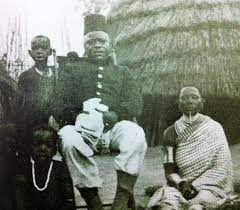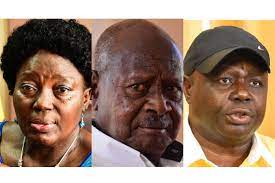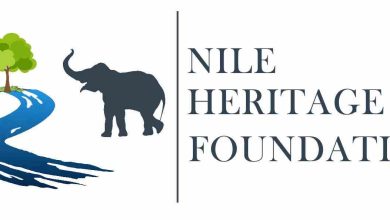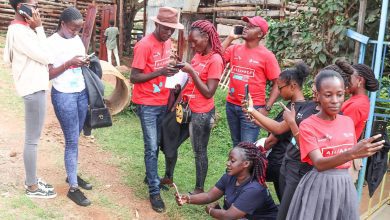
The construction of society is a natural process, look at what is happening in South Africa, Libya, Tunisia, South Sudan will tell you that any form of society is not permanent. Like Sneak when it grows old, they shade their old skins.
South African was sitting on a time bomb people will turn off the situation and they will change. Unfortunately Acholi community have not come in term of that, first of all, a leader has to differentiate the interest of their people.
A leader should be able to show people the way and walk the way, show them the way, lead them in the way, and transform them
The guns policy, and what spark off rebellion
Let us look back how was Acholi chiefs before the British Colonial master came in and when they arrived in Acholi Sub Region in between 1888 to 1898.
Although Sir Samuel Baker struggled to stop slave trade in his first visits and later British East African Imperialism was formed, the player were Major MacDonald and Major Delmo-Redecillf who came and met Rwot Awich of Payira in Nimule which was the headquarters of Eastern Equatorial. Those two leaders are the one who signed various agreements with Acholi chiefs.
Thus, the British Colonial were very smart to duped Rwot Awich and his fellow Acholi chiefs to believed that the agreement was really meant for abolition of slave trade, behind the treaty were diplomatic ploy of the goat gun boat diplomacy for gun policy which later was implemented in disarmament
the in charge of Eastern Equatorial Provincial administration for both Acholi the then Acholi Uganda and Acholi Sudan which in Nimule was Major Mac-Donald who signed several treaties with Acholi chiefs purported of stopping slave trades, but later in 1902 the Acholi provincial office was moved to Acholi Sub Region where the first treaty to raise flags in Acholi was done.
Arguably the most influential and controversial chief at the dawn of colonial rule in northern Uganda. When Acholiland was annexed to the Uganda Protectorate in the 1890s, Acholi chiefs responded differently to the colonial state. While some placed their polities under the new administration, others, including Awich, Ogwal Abwang of Puranga, Rwot Onung of Lamogi and Rwot Piamol who fought Paimol rebellion in 1912, resisted colonial encroachment on their chiefdoms. But many of those who initially rejected colonization eventually submitted to colonial rule.
Awich failed to sign the land agreement. “Awich told him that he can not talk to him, he can only talk to the Queen of England.”
Then came Major Aerman, the most notorious British Commissioner in Gulu Acholi who went with Buganda and some Nubians missionary arrested Rwot Awich in 1898 and deported him to Kampala, later his cell was named Kololo, and Awich came back in 1902 with the Christina Missionary from Bunyoro.
In 1910 Con. Mac-Donald arrested Rwot Awich and took him to Kololo convicted him, this because Rwot Awich allow an Arab slave trade to enter his palace, but because Aswa river could not be cross by the Camel whom the Arab slave trade was moving with, the Camel was left with Rwot Paicho.
On his way the Arab was killed by one Awich soldier called
Fr. Crazzolara, in his book says during the trial, while at Nimule, Awich’s own chief Jago Aluca of Patira betrayed him. He testified against him saying he had seen guns inside Awich’s court. Awich was relieved of his duty as Payira chief and given an eight year sentence in Kampala.
However, in 1903 the chiefdom which suffered the so called gun policy the first victim was the Puranga chiefdom, Gen Okello Mwaka who was military commander of Rwot Ogwal Abwang conived with the British Colonial.
What happened, when people were told to go and registered their guns, they were told to first leave their guns, and when they ended in their guns, they were told to move hundred meters away.
As soon as people moved to the position which they were told, British military men came and lined up between the disarmed people, blocking their guns.
The guns which were removed from the Puranga people were collected thrown in Aswa River by then DC Acholi Postlethwait the so called Bwona Gweno was the the one who suppressed Puranga chiefdom, in 1914 when Okello Mwaka was assassinated he was arrested together with Lamogi chief Rwot Onung.
From the society of discipline to the society of control
The late John Onyango Odongo, has been telling us that where the society he grew was an independent society where there was no thieve, no beggar, no adultery and no deceitful.
According to the paradoxes of the human rights book, rights were the noblest institution innovation of modernity, the “man” of rights, and the best crystallization of enlightenment principles. And yet, endless exclusion has accompanied every statement of right.
Rights are protection used by people against a voracious state of intractable power and tools in the modern arsenal for creating and disciplining the subjects. The pre-modern exclusion based on the inequalities of social hierarchy and divine order was too obvious, repellent and uneconomical to the modern eye.
Similarly, the few rights the absolute rulers of early modernity gave to their subjects were seen as part of royal nature. Rights were an attribute of sovereignty and restricted the sovereign only as a revocable grant from the king to his subjects.
Modern domination is much harder to detect, freedom and equality are the ostensive foundations of political system, autonomy and popular sovereignty their institutional applications. At the same time, exclusions, exceptions and separations have been mescapable
Companions of freedom and equality, and exploration of this intertwining of freedom and subordination calls for a change of perspective and abandonment of liberal political philosophy.
According to Michel Foucault, the modern Philosophy of the 21C, he argues that a new type of power and new methods for acquiring knowledge emerged at around the time natural rights entered the world stage.
So I argue that our people who are now embraced in the Museveni regime, that let us learn from the past, but build the future, knowing that the two brothers Hamite have been fighting over 1000 years from Ethiopia, Sudan and now Uganda.
And yet we have our roots from the same origin, Lango and Luo. (The Jew) Luo who had parted several times from Moses, the Sudanic movement those who are based in West Africa, and Horn of Africa, later the East Africa Great Lakes Regions.
The groups of Luo are; Acholi and Acholi Jolabwor from Northern Uganda, Padhola and Uganda, Kukulem from Eastern Uganda, Alur both from Northern Uganda and D.R.Congo, not forgetting . Baganda, Bunyoro and Tooro, not forgetting Busoga
Other school of taught intimates that, other Luo, the groups of Olum includes Lapir/Gipir, Labongo, Tiperu and Pugungu.
The groups og Hamite are the following; Koramajong, Iteso, Lango Omiru, Turukana, Pokot, Kalajing, Massia, Banyakole, Tutsi, Hutu and Bakiga
The followers of Tiperu are Lubgware, Kakwa and Madi, who live in Uganda, Sudan and D.R.Congo. While the group of Pugungu are the Pugungu people who live in Bunyoro Sub Region
Let us examine how we relate to the law and rights to overcome division created after the breakdown of our empire, is good enough that after being in civilization, we have defeated those who now have come to rule us again where they had gone and hid in the sea.
For how many times can be enslave.




